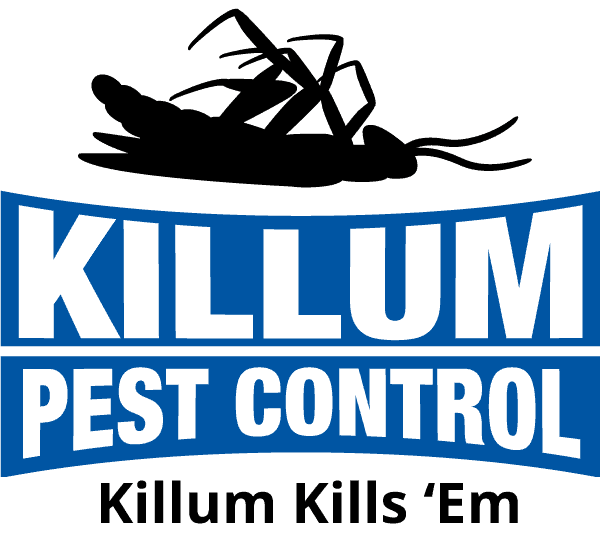Living in Pearland offers the perfect blend of city convenience and outdoor charm. But unwanted pests can quickly turn your backyard oasis into a buggy battleground. Before you reach for harsh chemicals, consider the power of natural pest control! This eco-friendly approach utilizes smart landscaping techniques to create an environment that discourages pests while attracting beneficial creatures.
This guide dives into effective and easy-to-implement landscaping tips specifically tailored for Pearland properties. We’ll explore plant choices that repel common pests, strategic garden planning to create natural barriers, and companion planting that attracts beneficial insects. With these simple strategies, you can create a beautiful, healthy, and pest-free outdoor space for your Pearland home.
Let’s get started and turn your landscape into a natural haven for relaxation, not unwanted visitors!
Choosing the Right Plants to Discourage Pests
Selecting plants that naturally repel pests is a smart and eco-friendly tactic we recommend to all of our clients. Plants like marigolds, lavender, and citronella possess natural oils and scents that many pests find unappealing. These are not just beautiful additions to your landscaping; they act as a first line of defense.
For instance, marigolds emit a scent that repels aphids and mosquitoes, making them an excellent choice for border planting around vegetable gardens or close to entryways. Lavender, with its soothing aroma, is distasteful to a variety of insects, including moths, fleas, flies, and mosquitoes. Positioning these plants strategically around your property can significantly reduce the presence of pests.
Another great choice for Texas landscapes is the Citronella plant. Well known for its mosquito-repelling ability, Citronella is perfect for patios and other outdoor areas where you spend a lot of time. It’s important to remember, however, that the effectiveness of these plants relies heavily on proper care and placement, which we dutifully guide our clients through.
By integrating these pest-repelling plants, we help ensure that your outdoor spaces remain enjoyable and free of unwanted guests.
Strategic Plant Placement for Natural Pest Control
How you arrange the plants in your garden or landscape can play a crucial role in controlling pests. We help our clients understand that the choice of plants and their placement is critical in creating a natural barrier against pests. For instance, planting garlic near tomatoes can deter red spider mites, while chives planted among roses can help keep aphids away.
These companion planting strategies are not just folklore—they are backed by agronomic principles that demonstrate how certain plants can enhance each other’s growth and resistance to pests.
We recommend maintaining a buffer zone of gravel or stone between your garden and your lawn. This adds aesthetic value and acts as a deterrent for pests that might travel from the lawn to the more succulent targets in your garden. Tall plants, like sunflowers, can also be used to shade lower-growing plants that are sensitive to sunlight and prone to drying out and becoming stress-attracted targets for pests.
In managing your garden’s layout, we focus on maximizing airflow and sunlight penetration, which are natural tools for mitigating pest invasions. Each strategic placement is thoughtfully considered to bolster your garden’s defenses while keeping it thriving and visually appealing.
Essential Maintenance Tips to Keep Pests at Bay
Maintaining your property is critical not only for its aesthetics but also for preventing pest infestations. Regular maintenance tasks, such as clearing away debris, trimming overgrown bushes, and inspecting outdoor structures, are crucial. These activities eliminate potential hiding spots and breeding grounds for pests.
For example, we ensure that gutters are clean and free from standing water to prevent mosquitoes from breeding. Additionally, sealing cracks and gaps in the building’s exterior can stop pests like ants, rodents, and cockroaches from entering.
Another vital part of maintenance is lawn care. A healthy, well-kept lawn is less attractive to pests. We encourage aeration to improve drainage and recommend proper mowing techniques to keep grass at an optimal height, discouraging pests like ticks and fleas that thrive in taller grasses. Implementing these maintenance tips effectively reduces the likelihood of pests taking over your property.
Natural Barriers and Repellents to Enhance Your Landscape
Creating natural barriers and using repellents are excellent ways to deter pests while maintaining an eco-friendly approach. By strategically planting pest-repellent herbs like lavender, rosemary, and lemongrass, we create a natural deterrent that enhances the landscape’s beauty and functionality. These plants produce strong scents that pests find unpleasant, naturally keeping them at bay without the need for harsh chemicals.
In addition to using plants, we incorporate natural stone barriers and mulches that impede the movement of pests into garden areas. Cedar mulch, for instance, is particularly effective against ticks and certain types of ants because of its aromatic oils. By integrating these elements, we fortify your landscape against pests and enhance its overall health and sustainability.
Enjoy Your Outdoor Space Worry-Free: Natural Pest Repellent Landscaping in Pearland
Understanding and implementing these strategic landscaping and maintenance practices will help ensure your property remains a comfortable, pest-free environment throughout the year.
Every step plays a significant role in natural pest prevention, from choosing the right plants to carrying out regular maintenance routines. As experts in local pest control, we’re here to provide you with the knowledge and services necessary to keep your space safe and serene.
If you’re ready to take control of your pest management in a sustainable and effective way, contact Killum Pest Control, Inc. today. Let us help you tailor a pest prevention plan in Ft. Bend County that works best for your specific needs and ensures your property is protected every season.





